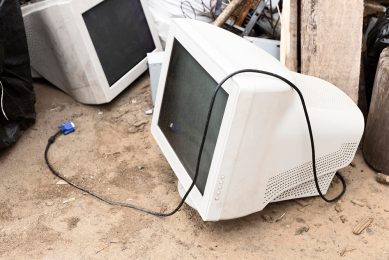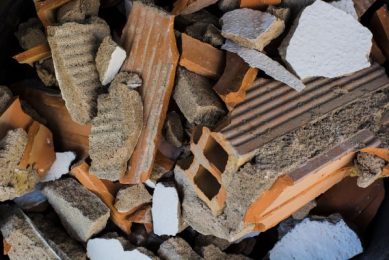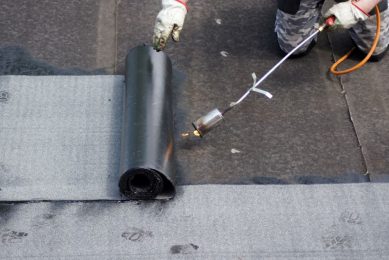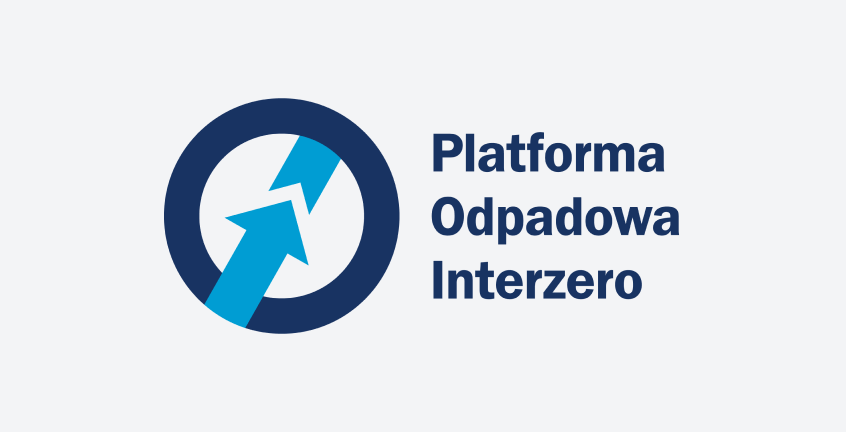What is hazardous waste? Definition and properties
Hazardous waste is defined as all waste which because of its properties, origin, chemical composition presents a serious hazard for the health or life of humans and other living organisms or for the environment.
A detailed definition of hazardous waste is formulated in the Waste Act and EC Regulation No. 1357/2014. According to their provisions, all waste that exhibits at least one of the following properties is considered as hazardous waste:
- explosive,
- oxidising,
- flammable,
- skin irritant, causing eye damage,
- Toxic to target organs (STOT) or Aspiration hazard,
- showing acute toxicity,
- corrosive,
- infectious diseases,
- toxic to reproduction,
- mutagenic,
- releasing gases of acute toxicity,
- sensitising,
- ecotoxic.
Types and examples of hazardous waste
Hazardous waste can be generated both in businesses (e.g. as a by-product of various production and technological processes) and in households. These include, among others:
- batteries and accumulators,
- plant protection products,
- expired medicines,
- lacquers and solvents,
- asbestos removed from roofs,
- oils and greases,
- electro-waste,
- contaminated soil.
All types of hazardous waste are listed in the waste catalogue. It divides waste according to its source of generation and its properties (including those specific to hazardous waste). Hazardous waste is classified in all the groups of the waste catalogueand can be identified by an asterisk next to the waste code.
Rules for handling hazardous waste
The most important rules for handling hazardous waste in a company include:
- a ban on mixing different types of hazardous waste,
- the prohibition on mixing hazardous waste with other types of waste,
- prohibition of the dilution of hazardous substances.
Failure to comply with these hazardous waste management rules may result in a fine for the operator.
In addition, any entrepreneur who generates hazardous waste arising from the operation of an installation (e.g. car oils, lubricants) in excess of 1,000 kg per year must obtain the relevant permit.
A special place among hazardous waste is occupied by medical waste, which used to be divided into special waste, contaminated waste and other waste (not having hazardous properties). The manner of handling hazardous medical waste is regulated in a separate legal act - the Regulation of the Minister of Health of 5 October 2017 on the detailed manner of handling medical waste.
Storage and containment of hazardous waste
Hazardous waste generated at the company must be properly stored, disposed of or recycled. They are subject to mandatory separate collection, which means that they may only be disposed of in containers intended for this purpose (e.g. hazardous waste containers, bags, cut-off mauzer-type containers). All of these containers should be appropriate to the physical and chemical properties and physical state of the waste in question.
The storage of hazardous waste is subject to strict restrictions. They may be stored by the producer, collector or treatment operator for a maximum period of 3 years and provided that the need for storage results from technological or organisational processes. In the case of hazardous waste intended for storage, this period is reduced to 1 year. All waste holders have a total of 3 years or 1 year to manage waste from the moment it is produced. Note that this time is counted in total for all waste holders from the moment of generation.
As a general rule, hazardous waste may only be deposited in a hazardous waste landfill secured against the release of hazardous substances into the environment. The exception is solid hazardous waste, which can be stored in separate parts of landfills for non-hazardous and inert waste. In any case, the storage site for hazardous waste must meet the locational and technical requirements set out by the Regulation of the Minister of the Environment of 30 April 2013 on landfills and the Regulation of the Minister of Climate and Environment of 19 March 2021.
Hazardous waste in BDO - who is required to keep records
The fact that an entrepreneur generates hazardous waste results in the obligation to enter the company in the BDO register and then to keep qualitative and quantitative records of waste generated and transferred (KEO). The records in the KEO are created on the basis of Waste Transfer Cards, which must be generated by the holder of hazardous waste before the waste is transferred to transport and further management entities.
The Waste Transfer Sheet includes, among other things, information on:
- the company transferring, transporting and taking over hazardous waste,
- the place where the waste was generated,
- the mass of waste transferred,
- the type and code of hazardous waste as defined by the waste catalogue,
The entity taking over the hazardous waste verifies this information. If all the data are correct, the KPO is approved and completes its circulation in BDO. If this is not the case, the entrepreneur ordering the collection of hazardous waste must correct the KPO. Vendors and brokers of hazardous waste are required to complete an additional document, the Hazardous Waste Record Card.
For companies that generate up to 100 kg of hazardous waste per year, the legislator has provided for the possibility of keeping simplified waste records. It includes only the need to issue KPOs in the BDO system, without having to keep KEOs.
Collection and management of hazardous waste from your premises
Regardless of the type of hazardous waste records kept in BDO, generators and holders of such waste should make use of services for the collection, transport and subsequent management of hazardous waste. Only entities that meet certain requirements (registration in the BDO, appropriately labelled vehicles, ensuring transport conditions adapted to the properties and physical state of the hazardous waste, possession of relevant permits or authorisations) are authorised to provide this type of service.
Order professional hazardous waste collection from your company!
Disposal of hazardous waste can be carried out by thermal treatment (incineration at 850-1100oC), by autoclaving (neutralisation of medical waste in a steam steriliser), by microwave treatment using appropriate radiation or by chemical treatment (chlorine disinfection). Before final disposal, hazardous waste is also subjected to other processes, such as recovery of certain materials and raw materials, neutralisation or recycling.
The generator of hazardous waste is only relieved of the management of this waste once it has been transferred to a final recovery or disposal operation. It is therefore crucial to use transport and collection services provided by professional, trusted companies that transfer hazardous waste directly to an installation or landfill.
Simple and fast hazardous waste management with the Interzero Waste Platform
Meeting a company's hazardous waste management obligations is costly and time-consuming. To optimise waste management processes, entrepreneurs use online tools to improve waste management. Such a tool is the Interzero Waste Platform, which makes it possible to realise and automate all duties related to the recording, logistics and management of hazardous waste.
With the help of the Interzero Waste Platform:
- you will increase revenue from the sale of raw materials,
- order hazardous waste collection and create a collection schedule,
- you will gain the ability to automatically create and approve KPOs,
- you correct the KPO with 1 click,
you automate the keeping of hazardous waste records in BDO (without having to manually create records in KEO), - generate reports to monitor the costs and efficiency of your company's overall waste management,
- you organise all your company's environmental documentation by storing it in a digital repository.
The Interzero Waste Platform enables hazardous waste management from any location and device with internet access and a browser. The tool also eliminates the need to log into the BDO system and authenticate with a trusted profile each time. You will perform all the activities related to hazardous waste registration in BDO in the Platform panel - faster, more convenient and with the support of an Interzero expert.
Interzero's Digital Waste Platform allows you to manage not only hazardous waste, but also other waste fractions and all issues related to your company's waste management. Find out how Interzero's Waste Platform will improve your company's waste management!



